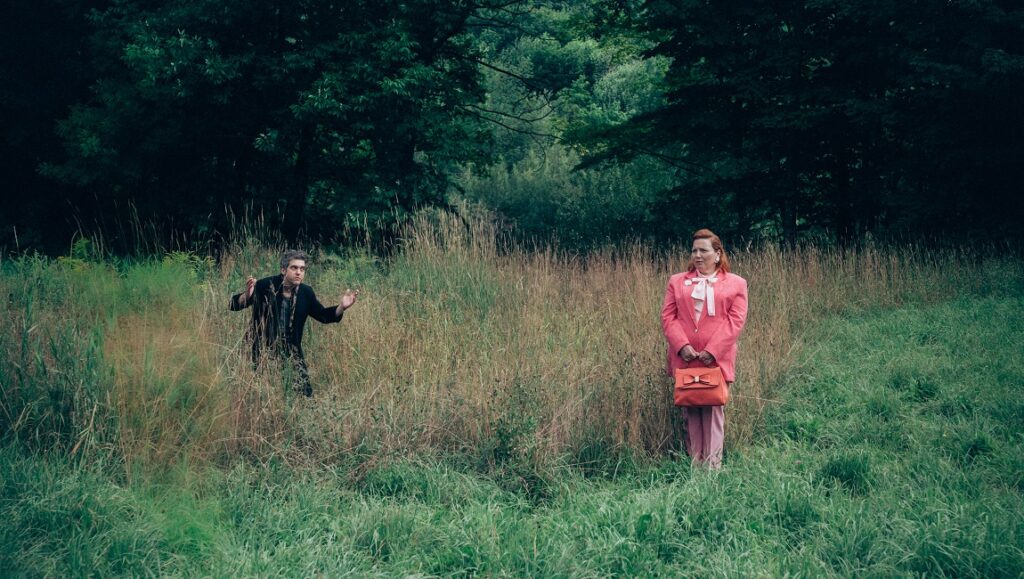Retreating from the weight of actions into the weightlessness of words, Denis Côté’s latest finds a rambunctious solace in the oratorial. Serving possibly as a stylistic antithesis to 2019’s dialogue-free Wilcox (centered around the life of a drifter), the opportunely-titled Social Hygiene recalls, instead, a linguistic primacy favored by and featured in the films of Jean-Marie Straub and Danièle Huillet. Like them, Côté engages in the dialectical interplay of ideas and ideologies; his structural rigor, evident in the film’s meticulously composed landscapes and thespian dialogue, prefigures his tacitly political focus. But where Straub-Huillet draw their greatest political lessons from history, the Canadian auteur situates his philosophical inquiry within contemporaneous socio-political concerns. Specifically, Social Hygiene bemoans the healthy order of society — but what is hygiene, if not order persevering? — and posits, as its disinfectant, individual apathy.
Côté’s protagonist is Antonin, one such passive candidate; a loafer and thief who takes pride in both, and subsequently excuses his idle and dishonest practices by way of rhetorical chiasmus. A “deep moral fatigue before the ugliness of this world” explains his reluctance to engage with it, whereas pickpocketing, despite its moral failings, demands belief “in a job well done.” His sister, wife, mistress, tax collector, and one of his petty victims seem to disagree. Pronouncing him a dandy whose character remains, despite its superficial freedoms, futilely “tiresome, lacking in originality” among other affronts, the women in Antonin’s life figure larger and more accomplished than him. Over three days, they chide his incurable cynicism and urge him, for the sake of personal respectability, to turn his life around: quit robbing, go to the beach, pursue the arts, pay his taxes, and make amends for a shattered windscreen and stolen goods. Antonin, in turn, stands unabashed amid their ranks, audited on all fronts but refusing to be held accountable.
Conceived a good five years prior to the COVID-19 pandemic on a holiday imbibed with the influences of Modernist writing, Social Hygiene nonetheless encapsulates a greater ennui of post-Modernist times; one tailored to isolation, propped up by linguistic sparrings between its disenfranchised male and his fairer counterparts. Shot in the Québécois woods using mostly static panoramas, Côté’s eccentric comedy assumes a theatricality popular of late with such filmmakers as Eugène Green and Albert Serra; and, following the latter’s Liberté in its Enlightenment-set milieu, furnishes the cast with anachronistic costumes and gestures as befitted their European forebears. A distancing occurs, not only through its Brechtian artifice, but also literally: standing meters apart, and voicing their mutual discontent into the wind, Antonin’s society heralds our zombified own, neutered by political anathema and existential anxiety. Social Hygiene refrains from condemning either interpretation of what constitutes as hygienic; perhaps, especially under lockdown, neither bourgeois optimism nor proletarian fatalism alone proves sufficient.
Published as part of Berlin Film Festival 2021 — Dispatch 5.


Comments are closed.